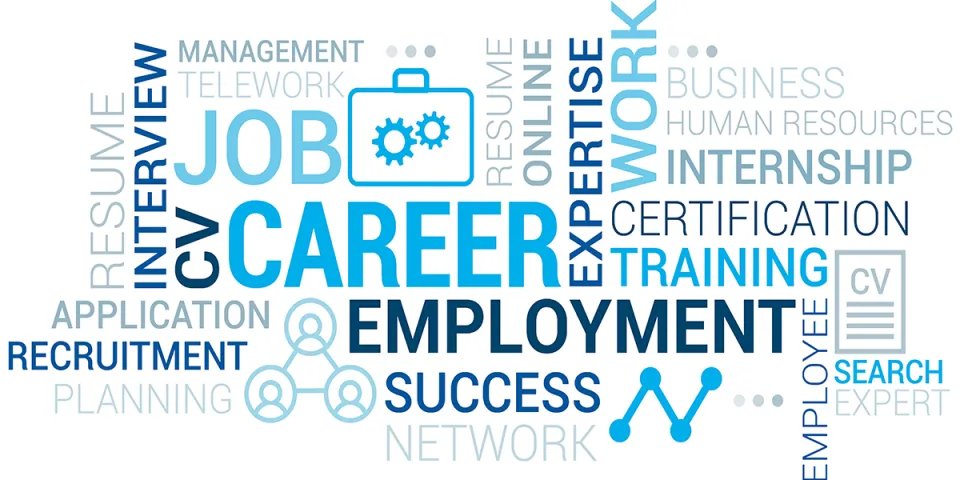Latest 
 Career Development Denise Alexander
Career Development Denise Alexander
Recent Blog Posts


Have you been to a career or job fair yet? Think it’s too early because you are still in school? Think again! College career fairs are an excellent way to meet employers, explore different positions in your field, and sharpen your professional networking and interview skills.
Follow these tips to make sure your visit to the career fair is worthwhile and leads to meaningful employment.
Preparation is key. Many students receive job offers at career fairs if they take it seriously and put in the work beforehand. Before you attend a career fair, make sure you:
1. Polish up your resume. This is your ticket to the big event. Work with your career coach to make sure you are representing your skills, experience, employment gaps or any other hard-to-explain topics the right way on your resume. Then, print off a dozen copies (or more) to hand out at the career fair. Plan ahead for how many companies you would like to speak with and how many representatives they may have, then add a few extra copies as needed.
2. Use your network. Hopefully by this point you already have a standout LinkedIn profile, but if not, it’s a good time to get in the game. Career fairs usually advertise the companies that plan to attend. On LinkedIn, you can look up those companies, see what connections you have there, and connect to hiring managers or recruiters. You can also use LinkedIn to research open positions at the company, and see if there are any that you would be interested in or qualified for.
3. Do your research. There’s no reason to stop your research at LinkedIn. It’s a good idea to spend some time browsing each company’s website to better understand who they are, what their mission is, and if you believe you would be a good culture fit for the organization. Make a list of all of the companies you would like to meet with and make note of topics you could bring up in a discussion with their recruiters. Make sure you prioritize who you would like to spend time with — you might not get to them all, especially if one asks for an impromptu interview!
4. Plan your outfit. Professional dress is incredibly important at a job fair. Every discussion has the potential to turn into an interview, and you want to dress the part. This means looking sharp and well-groomed. Men should wear a suit, or at minimum a collared shirt and tie. For the ladies, skirts, dresses, business suits, professional blouses and close-toed shoes are always impressive. Make sure you are covering any tattoos and your clothes are wrinkle-free.
5. Practice your interview skills. Picture yourself stopping to chat with an employer. The first thing you might be asked is, “Tell me about yourself.” What do you say? How can you brand yourself as the best candidate for the role in less than 30 seconds? Again, this is where your career coach can really help you get on your A-game. They can help you rehearse your responses to common interview questions, and come up with an elevator pitch that showcases your skills and who you would be as a future employee.
It’s important to make a good impression during your discussions with employers, but you also want to make sure you get all the information you need about the company. Here are five questions you should pan to ask.
1. Ask about open positions. You want to frame this question in a way that shows you did your research beforehand. For example, you could ask, “I noticed you had an opening for an RN in the ICU. I would love to know more about the details of this position. What specific skills are you looking for in a nursing candidate?” Asking those follow-up questions will show how well-prepared you are and how serious you are about applying.
To continue the conversation and guide it in a positive, yet investigative way, here are a couple of additional questions you should ask:
2. What do you love about working here?
3. Is this a growth position or a replacement position? These two questions will give you insight into the culture of the unit, team or department, which you cannot easily get from the website. If you had a LinkedIn connection who worked in this department, these are also questions you could have asked that person before the career fair. Asking specific questions about the position and the company help you stand out as a candidate but also allow you to learn more about the employer and gauge whether it would be a good fit for you. Lastly, ask a couple of questions that move you forward to a more formal interview or job offer.
4. How soon are you looking to hire?
5. What would the first 30 days on the job look like, if I were offered the position? Asking these questions helps the employer envision you in the role and what it would look like to move you forward. Make sure you give them your resume, possibly a cover letter and/or business card and make sure you take down their information. If the employer has printed job descriptions or any material to give you about the company, take it and review it. These pieces of information will be key for your formal interview.
It’s always best practice to send a thank-you note after an interview. The same goes for career fairs. Emailing a quick thank you and summary of the conversation to people you talked with makes a big impact, and could help continue the discussion going forward. Send an email as soon as possible, ideally that night or the next morning.
Lastly, I cannot stress enough how much networking will help you in the long run. Chat with everyone on your priority list at the career fair, and add them to your LinkedIn network. You might not be ready for a job right now, but you never know where that connection could take you in the future.
As you continue your job search, it’s a good idea to meet with some of your peers who will be or are in the industry. They can be a valuable source of information and give you first-hand insight into what it’s like to work at a particular company or within a certain role. Get their cards and add them to your network, too.
I know it seems like a lot, but let’s break it down once again: Career fairs are incredibly important for landing your dream job. In a world of electronic Applicant Tracking Systems, this is your ticket to stand out among your peers by being READY. Take time to get your resume in shape, polish your interview skills and attire, and flex your research skills before getting to the career fair – and don’t hesitate to make an appointment with career services as you prepare. Call (866) 508-0748 x 240 or contact us via email.
At the fair, make sure you ask questions that show you have been researching the company and why you are the best fit. Have the confidence to ask about next steps and get the contact information of the recruiter or hiring manager. Best of luck!
BLS pay estimates calculate the median annual wage for various occupations. Per the BLS the median wage for an occupation is: "The wage at which half of the workers in the occupation earned more than that amount, and half earned less. Median wage data are from the BLS Occupational Employment and Wage Statistics survey." Bureau of Labor Statistics (BLS), U.S. Department of Labor, Occupational Outlook Handbook 2024. BLS median wage estimates do not represent entry-level wages and/or salaries. Multiple factors, including prior experience, age, geographic market in which you want to work, and degree level and field, will affect career outcomes, including starting salary and earnings as an experienced employee. Herzing neither represents that its graduates will earn the median salaries calculated by BLS for a particular job nor guarantees that graduation from its program will result in a job, promotion, particular wage or salary, or other career growth.
Get the latest news you need to know, from study hacks to interview tips to career advancement. Have it delivered right to your inbox biweekly.